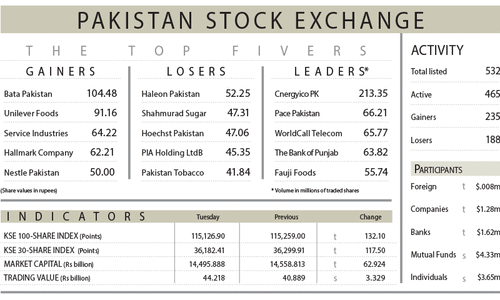RIYADH, Aug 16: Crude market sentiments have changed and changed drastically – from bullish to bearish – in a matter of weeks only.
Barely a few weeks ago, it was the issue of soaring prices that was gripping the world’s attention. Saudi Arabia and other oil producers were literally in the firing line for not opening up the taps. Now things appear completely altered.
Under intense pressure from the West, when Saudi Arabia announced increasing the output by another 200,000 bpd on June 22, not many people took it seriously, terming the gesture too little to have any real impact on the markets.
However, Sheikh Zaki Ahmad Yamani then argued in an interview that this additional crude would take almost 40 days to reach the markets and dampen the bulls somewhat. And that now seems to be the case.
A number of factors appear to be working simultaneously. Output is definitely up. As per a recent Platts survey, the Organisation of the Petroleum Exporting Countries’ (Opec) 13 members boosted their collective crude oil production by 300,000 barrels per day (b/d) in July to average 32.77 million b/d over the month.
Meanwhile, weakening demand is also starting to impact the demand-supply balance.
Signifying the changing dynamics, Chinese crude imports unexpectedly fell seven per cent in July to a seven-month low in the steepest monthly drop since 2005.
Consequently oil prices fell considerably, outweighing in the process concerns over supply disruptions stemming from the conflict between Russia and Georgia.
And China is not alone in this emerging trend. Consumption in the United States and other developed economies has in the meantime gone down too, apparently due to high market prices. US petrol demand fell for a 15th consecutive week, as motorists coped with high prices by driving less, a MasterCard report showed last week.
A jump in US crude and other fuel stockpiles, reported earlier the week, also helped in strengthening the belief that high energy prices are eating into demand. The fall came as services industries throughout the US and Europe shrank for a second straight month in July.Tony Hayward, chief executive of BP, was quoted as reporting a drop in oil demand of up to 10 per cent in countries that are members of the Organisation of Economic Cooperation and Development (OECD).
Meanwhile, the strengthening dollar is also taking its toll, forcing speculators out of the commodities, taking positions elsewhere. And oil has not been the only commodity to have witnessed a bearish outlook. Other major commodities from gold to grains are also in the same loop, losing their lustre to the speculators.
On Aug 3, the UBS Bloomberg Constant Maturity Commodity Index of 26 raw materials fell 3.5 per cent, its biggest loss since March.
Interestingly, investment bank Lehman Brothers in a recent report also emphasised that the speculator interest, which had added to crude’s bullish run this year as investors bought commodities to hedge against rising inflation and the weak dollar, was shifting.
“From a high near 130,000 contracts (on the New York Mercantile Exchange) long last year, net length has declined and even gone into net short territory in recent weeks,” the bank said.
Monetary conditions also appear to be fading away, reducing oil’s appeal to investors. The strength and tenacity showed by dollar in recent weeks against major global currencies has definitely contributed in the oil receding in appeal as an inflation hedge.
Earlier in the week, US dollar traded near a seven-week high against the euro, and was near its highest versus the yen in more than a month.
Crude markets have undergone a massive transformation over the past few weeks and for change it is a very welcome one — for virtually every one — from consumers to most producers.













































Dear visitor, the comments section is undergoing an overhaul and will return soon.